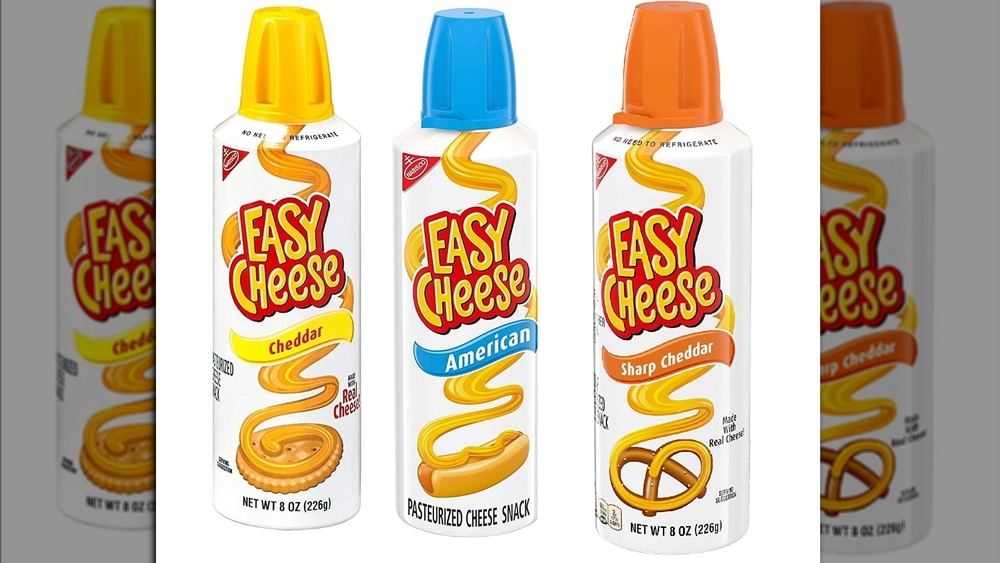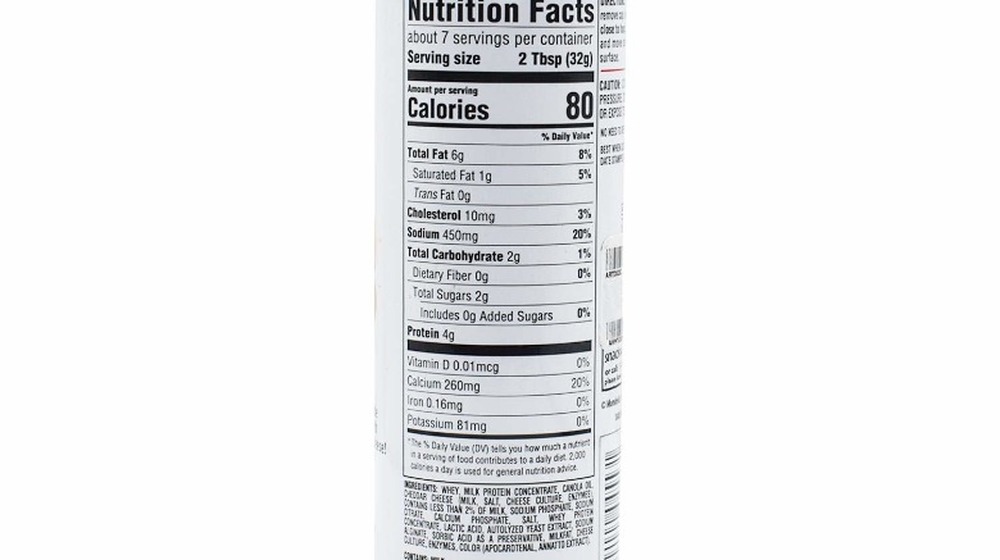Why You Should Rethink Eating Spray Cheese
There are all kinds of cheeses in this world. Raw cheese, artisanal cheese, "pasteurized processed cheese food," whizzy cheese, and weird cheese-that-may-not-be-cheese. (Seriously, Dollar Tree, what's up with those non-melting slices?) Oh, and there's also cheese that you spray out of a can like it's whipped cream or shaving cream or something. If you've never used the product and are wondering why such a thing needs to exist, it does allow you to pipe pretty cheese borders on your mashed potatoes or make perfectly cheesy rosettes on your Ritz crackers.
If you're at all concerned about the health benefits of your cheese, however, "Easy Cheese" should be a hard no. While certified trainer and nutritionist Jamie Hickey of Truism Fitness does admit that even "processed cheese spread...when used in moderation, still ha[s] some wholesome nutrients," he says that spray cheeses, on the other hand, are "basically lab-made creations masquerading as a dairy product." Eek! So what are these Frankencheeses made of? Speaking with Mashed, Hickey says that while their labels do list some recognizable ingredients like whey, canola oil, and even actual cheese, what he finds concerning is all of the chemicals these products contain.
What's in these lab-created "cheeses?"
Hickey says that one of the mystery ingredients in spray cheese is sodium phosphate, something that's used to keep the various cheese components from separating. Sodium phosphate, he tells us, can make urine acidic (sounds painful!) and can also lead to kidney disease and renal failure. Another type of sodium, sodium citrate, is used to keep the cheesy substance from getting clumpy, but it, too, is acidic and can cause tooth erosion. The most dubious ingredient of all, according to Hickey, is sorbic acid. This preservative will keep your cheese mold-free for far longer than he considers natural, but he warns: "Don't get it on your skin since it will cause a rash and more serious side effects if you happen to be allergic to it."
While spray cheese isn't so dangerous that it needs to be labeled with a skull and crossbones, Hickey does say that "since it contains more chemicals, unnatural, processed, and unfamiliar ingredients [than] natural ingredients, I would recommend using it sparingly." Luckily, the world is full of all kinds of less dangerous, cheese that may not be quite as "easy" but is bound to be a lot tastier.

